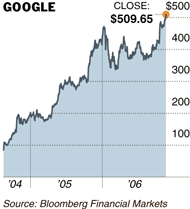From today’s Guardian…
Sir Alan Budd, the former Bank of England Monetary Policy Committee member, will chair the BBC’s review of the impartiality of its business coverage.
Instigated by the corporation’s governors as part of a series of reviews, BBC staff, licence fee payers, unions and other interested parties will be invited to give their views to Sir Alan’s six-strong panel.
The other members are: Stephen Jukes, head of Bournemouth University’s media school; Chris Bones of Henley Management College; John Naughton, Open University professor and Observer columnist; Oxfam director Barbara Stocking; and Paralympic athlete Dame Tanni Grey-Thompson.

